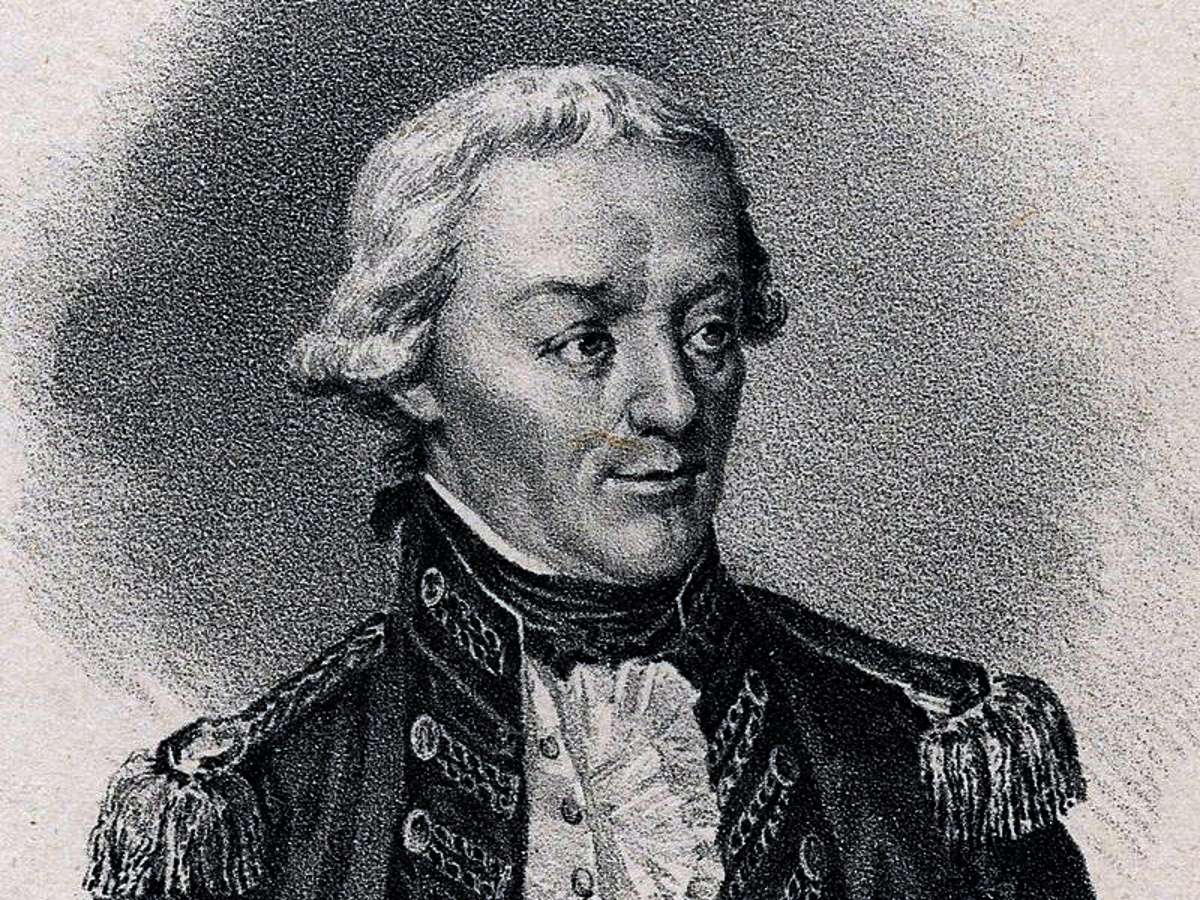The British occupation of Newport, R.I. in 1776 made a lot of sense. Newport was a wealthy town. Years of wide-ranging international trade had made it the fourth largest town in the colonies. And its harbor was large and sheltered.

Maj. General Richard Prescott was a thorn in the side of Rhode Islanders during the British occupation of Newport.
In short, it was a logical place for the British General Henry Clinton to eye as a potential winter home after being repulsed from Charleston, S.C. that June.
Newport had seen its share of skirmishes in the spring of 1776, mostly over British demands for supplies. The patriots drove off a small British fleet. But Clinton had 8,000 to 10,000 men and a squadron of ships at his disposal.
As word spread of the British plans, the exodus from the city picked up its pace. Many of the wealthy families had already fled, and many more continued leaving until the city was at least half empty.
The Newport Mercury newspaper, sympathetic to the patriot cause, picked up and moved to Attleboro, Massachusetts. Other outspoken rebels moved inland. When the British arrived in December, there was no force to resist them.
“The troops . . . disembarked without the least opposition; when, being informed that the rebels had quitted the works in and about the town of Newport, and were retiring towards Bristol ferry, I detached Major-general Prescott, with the grenadiers and light infantry, to intercept them,” Clinton would write back home to England.
Richard Prescott
Richard Prescott could find few rebels to fight and settled for sending a few off the island and collecting up cannons that the rebels had been unable to take with them.
If the citizens of Newport had any doubts about what life under the British would be like, they didn’t last long. The British commandeered homes to house the soldiers and stole food and valuables. Prescott built for himself a long promenade in front of the house he’d seized made up of the doorsteps belonging to other houses. A petty tyrant, he took to the streets and bullied people, beating them with his cane and imprisoning them on a whim.
The British stayed in Newport for almost three years before they evacuated.
By the time they left, the town was in ruins. The soldiers looted and destroyed property and had chopped down all but one tree for use as firewood.
This story updated in 2022.

14 comments
I love your history lessons.
[…] in the 1850s, Moore bought a home in Newport, R.I., and became a summer […]
[…] patriots moved arms inland from Newport, R.I., Providence and New London, Conn. A rumor spread in Boston that a large contingent of redcoats were […]
[…] failure in 1778 of French Admiral D'Estaing and his 4,000 men. They had arrived to drive the British from occupied Newport, but abandoned the invasion amidst rumors and […]
[…] price for his loyalty to the British. Grateful for their protection, he stayed in Newport when the British captured the town in 1776. Three years later he moved with the British to New York, where he had to depend on charity. In […]
[…] Allen was a staunch supporter of the revolution and refused to help the British when they occupied Newport in 1776. He gave the patriots livestock and provisions, and wouldn’t let a Loyalist neighbor use his […]
[…] and British troops stayed there during the occupation of Newport and the Battle of Rhode Island. It was used as a boarding house for many years until a benefactor […]
[…] U-123 sunk the Norness with three torpedoes. Hours after the Norness sank, a blimp spotted the hull sticking out of the shallow water. Several hours later, 39 survivors in lifeboats were taken to Newport, R.I. […]
[…] place in history in July of 1777 when he slipped into Middletown, R.I. He passed more than 1,000 occupying British troops and kidnapped British General Richard Prescott from the house he […]
[…] in the 1850s, Moore bought a home in Newport, R.I., and became a summer […]
[…] the British occupied Newport in 1776, they used the library as an officers’ club. Many of the books disappeared. In 1806, the library […]
[…] British captured the battery in late 1776 after they landed at Newport. They expanded the battery, building Beaver Tail Fort, Beaver Head Fort and Fort Conanicut. As the […]
[…] British captured the battery in late 1776 after they landed at Newport. They then expanded it, building Beaver Tail Fort, Beaver Head Fort and Fort Conanicut. As the […]
[…] Allen staunchly supported the revolution and refused to help the British when they occupied Newport in 1776. He gave the patriots livestock and provisions, and wouldn’t let a Loyalist neighbor use his […]
Comments are closed.